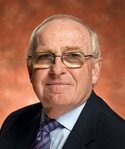Frontline Print’s managing director Wayne Godsell says you have to keep seeking out new opportunities and investing in new technology to stay in business, and he is doing just that
In today’s rapidly transitioning print business environment many print businesses are struggling to adapt, but there are those companies that are in fact evolving and moving forward. They are taking advantage of new market opportunities, and reaping the rewards.
Frontline Print, located on Sydney’s lower north shore, is one of the latter group. Its managing director Wayne Godsell says, “Our philosophy is that we have to keep pushing the business forward, otherwise we will be left behind.”
Frontline was established by Godsell 28 years ago, and from the beginning was in digital print. Godsell was not from a print background, in fact he was an accountant, but finding a lack of stimulation in that field decided to enter the hurly burly world of print. He started by printing price tickets for Big W on laser printers.
Then after a couple of years he took a phone call from the store asking him if he could print barcodes. In the best spirit of entrepreneurship he replied “sure can” before quickly going on to find out what they were and how to do it.
He says, “We have printed variable data from the word go, and with Big W and other department stores we were printing thousands of tickets every day. In those days there was a ten day turnaround, that of course would be unthinkable today, now it is 24 hours.” The price tickets remained the cornerstone of Frontline’s business for two decades, although the company consistently expanded its product range, and then found a new niche market when phone cards for ultra cheap international calls that were routed through the internet took off ago. The company was producing many millions of them for several years, but in recent times with the advent of new communications technologies such as Skype and that business has dropped off. One.Tel and Optus were major clients for several years, but when they suddenly pulled out of the phonecard business Frontline was left with seven tonnes of phone cards to dump.
Godsell says, “In the early days we would gang up jobs and send them out to be printed offset, then overprint with high speed ink jet for the variable data. This worked well for five or six years, and then seven or eight years ago we bought our first colour digital printer and so were able to bring the whole operation in house. We didn’t have to work out the ganging up, and we were reprinting the colour and the variable data in one pass, so we could get them out of the door more quickly.”
Frontline in fact took one of the first colour digital printers in the country, and this early adopter mentality has been a key part of the company’s success over the years. It was one of the first companies to install a Konica Minolta digital printer following Konica Minolta’s entrance to the commercial print market in 2005, and was one of the first companies to install the new Konica Minolta 8000. Back in 2005 Frontline installed a bizhub 6500, which is still in daily operation, as are all four Konica printers it has installed since then. Godsell says, “I bought the first bizhub because I was impressed with the quality and the variety of stocks it could print. In my business I need to have printers that will enable us to take on as many different types of work as possible, as we are constantly looking at new niche market opportunities. The Konica quickly proved itself able to handle all kinds of stock, and this combined with the quality and the reliability has kept us coming back for more.”
Part of the reason for the need to diversify was that Godsell saw the writing was on the wall for phone cards. He says, “We keep a very close eye on the market, we could see the way technology was developing, so we foresaw a shift among the public away from phonecards, and this spurred us on to develop new niche markets. We are always looking for alternatives.”
One example from Frontline’s search for a niche would be its entrance into plastic cards. Godsell says, “We saw the growth in loyalty cards, in membership cards, in ID and security cards, so began to experiment with plastic on the Konica’s, and found with some modification they were able to print onto plastic with no problems.”
The issue for Frontline in fact was the finishing, plastic cards of course need round corners, and they behave differently from paper and board in many respects. Godsell went to the US to find suitable finishing equipment, a successful trip, and now he believes Frontline is the only printer in the country with such finishing solutions. He says, “Any niche market is only a niche because it requires some level of specialisation, a niche isn’t going to involve doing what everyone else does, so therefore you need to spend time, money and energy to exploit the niche opportunities. The big benefit of course is that there is less competition than general commodity printing, and that means sustainable margins. It took us quite a while to set up our plastic card printing operation, but since we kicked off it has proved a good business.
The latest Konica installed by Frontline is the bizhub 8000, Konica’s biggest printer, with Frontline taking the second in the country some 18 months ago. Godsell says, “We have one of the highest click rates in the country, we are pumping through a significant amount of work day in and day out, but interestingly we also have one of the lowest maintenance records, it has just been 33 days between technicians being called out, which for digital printers is a great run.
“And we push the 8000, it is often on double shift work, and we regularly test its limits, its rated top stock for instance is 350gsm, but we put 400 or 450gsm through it. We know what we are doing, but even so we are very pleased the printer can handle it. The quality, consistency, reliability and ability to handle heavy stocks is a winning combination for us.”
Godsell though is not sitting on his laurels, he says, “We have a steady eye on the future and are looking for the next niche market. In my view the last 12 months have been the most difficult the print industry has faced, particularly in the offset world where there is just too much capacity chasing a shrinking market, but being in digital is not in itself going to grow our business, it is focusing on our customers, developing new business and staying one step ahead.”
Part of that development has come in the form of working the Federal Governments Enterprise Connect program for the last two months. Godsell says, “I want to draw on what expertise I can, and I was more than happy with the results from our time with Enterprise Connect. I want to take Frontline from a $2m turnover business to $3m in the near future. It was the first time I have used an advisory service of this nature, but I have to say it was a more than worthwhile investment of time.”
Keeping a steady eye to the future also means succession planning, and for Godsell this means his son, who has been with the business for the past twelve years since leaving school, and has just been promoted to production manager.
Godsell says, “I will be looking to take a step back in the next three to five years, maybe to three days a week. I’m very lucky in that my son enjoys his work here, and has proven adept at understanding the production process, he could take the bizhub 8000 apart himself and put it back together again. I think for young people print does provide an exciting prospect, but it has to be presented properly. The opportunities though will just continue to grow, particularly with data and print.”
Moving forward: Web to print and wide format
Moving the business forward is a key mantra of Godsell, and one of the biggest moves in the last six months has been the implementation of a web to print solution. Godsell says, “Enabling the business to operate online has bought a whole new dimension to Frontline. Instead of being a Sydney based operation we are now national, we ship interstate every day, and in fact international, we ship to New Zealand almost daily, as well as the Pacific Islands and PNG. The amount of new business we are racking up is tremendous, and has quickly become a significant part of our business.”
Frontline installed a web to print solution from Quote & Print, which was already its MIS supplier. This has resulted in a seamless operation. Godsell says, “Customers place their order, upload their artwork, pay, then the job goes straight from the web to print into the MIS, which manages the job. I receive a notification on my phone that an order has been placed. And the money is in our account two minutes after the order has been placed. I have to say the feeling you get when say on a weekend when I am away from the office and my phone is constantly beeping with new orders that are going into print – and that have been paid for – is second to none.”
The focus for web to print at Frontline is firmly on gaining new customers, and it is paying off. Marketing is through Google Ads, with targeted keywords. Godsell says, “We pay each time someone clicks on our ad, so we have to go all out to convert that clickthrough into a sale, but it works for us. And of course if that customer comes back for a repeat job, which they very often do, there is no charge from Google for that.”
Godsell admits it has been a steep learning curve, and the website is still a work in progress with only about half Frontline’s products so far listed, but six months in the company has already reaped rewards. He says, “Web to print is like having a team of sales reps working 24/7 in every town and city in the country, but for a tiny fraction of the price.” Frontline hasn’t had an actual sales rep for 12 years, since the last one took off with a number of customers and Godsell decided he wasn’t going to go through that again.
Wide Format
Just 12 months ago Frontline dipped its toe in the wide format market when it installed a Canon imagePrograf. Godsell says, “We saw an opportunity, and wide format has really taken off since then. Within two months the Canon had paid for itself, and we have since installed two more wide format printers, a Roland VS for print and cut, and a flatbed LEJ Roland. We use the Canon for posters, and the flatbed Roland for printing on a great variety of different stock, from plastics, perspex, glass, wood, PVC.

 Andrew Tribute
Andrew Tribute






